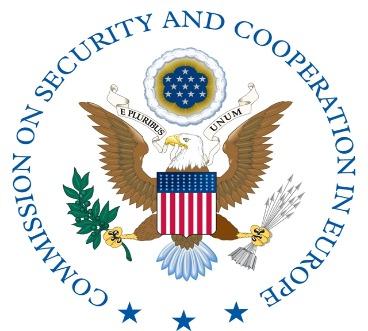In the past months, we have seen a rise in anti-racism protests and movements across the globe. However, there is nothing recent about the roots of systemic racism that were planted in our societies centuries ago. Through targeted and conscious action in the United States and throughout the OSCE region, this racism can be removed, root and branch.
Addressing racism has long been a focus of my work as Special Representative on Anti-Semitism, Racism, and Intolerance for the OSCE Parliamentary Assembly and as a U.S. Senator in the leadership of the U.S. Helsinki Commission, simply because when we advance racial justice and civil rights, we strengthen the foundations upon which our democracies were established.
It is for this reason, that the U.S. Helsinki Commission has joined forces with the High Commissioner on National Minorities’ Office to hold today’s event following several hearings and other initiatives the Commission has advanced on international racial justice and human rights at home following the tragic death of George Floyd. I am pleased that Hilary Shelton of the NAACP is also with us today to discuss the work of civil society in addressing this problem.
In the past I have said, “before they first put on a badge, a police officer takes an oath to uphold the law. Most do so with the best intentions and carry out their duties with a willingness to help communities. But in far too many communities around the country, the system in which they work has been failing. People are dying at the hands of police, predominantly people of color. Accountability has been tied to public videos rather than doing the right thing.”
Black lives matter and we must do better to protect the civil rights, human rights, and lives of men, women, and children of our country and throughout the OSCE region. My state of Maryland has had numerous protests in response to the tragic police killing of George Floyd, Freddie Gray, Breonna Taylor, and other African-American members of our community.
In response, I have called for a federal civil rights investigation into the killing of George Floyd, and some years ago introduced the End Racial and Religious Profiling Act (ERRPA) and the Law Enforcement Trust and Integrity Act (LETIA). I co-sponsored the Justice in Policing Act in the Senate, which would combat police misconduct, excessive force, and racial bias in policing.
The Justice in Policing Act legislation included my ERRPA and LETIA legislation, which has passed the House but has stalled in the Senate.
I have been proud to work with my House and Senate colleagues on this and other legislation that requires enhanced profiling data collection for our Justice Department; conditions State and local law enforcement funds on combating profiling, and requires performance-based standards to ensure that instances of misconduct will be minimized through training and oversight.
Other important provisions included in the Justice in Policing Act will save lives. The bill bans choke holds by federal authorities and conditions federal law enforcement funds for State and local governments on the adoption of choke hold bans. It also bans no-knock warrants in federal drug cases to address the tragic circumstances that led to the death of Breonna Taylor and others.
Importantly, this legislation also calls for steps critical to demilitarizing our police forces. I have repeatedly said we are a civilian society; not a military state–and we must encourage more professionalism, consistent with changing our police officers’ mentality from a warrior mindset into a guardian mindset. This means limiting the transfer of military-grade equipment to State and local law enforcement and requiring Federal uniformed police officers to wear body cameras.
Finally, the legislation holds police accountable in courts and gives better tools to the Department of Justice and State attorneys general to investigate and prosecute police misconduct.
In 2016, the Department of Justice concluded that the Baltimore Police Department had targeted African-American residents for disproportionate and disparate treatment and that this widespread pattern and practice was illegal and unconstitutional. The U.S. District Court for the District of Maryland is now overseeing a complete overhaul of the Baltimore Police Department, which began in 2017. We have made progress since the tragic death of Freddie Gray in Baltimore in 2015, but recent events indicate we have so much more work to do.
These are examples of legislative and legal aims that could serve as a guide across the globe. I welcome today’s event as an opportunity to consider these and other practices that can improve law enforcement and its relations with our communities. I have seen the extraordinary difference it can make when public leaders acknowledge past injustices, work to heal and repair the past, and build safe and inclusive societies. I have seen how empowering communities to reimagine public safety in an equitable and just way can transform our societies.
Mark Duggan in the UK, Adama Traore in France, Oury Jalloh in Germany are just some of the Black and minority European lives that have been lost to police killings over the past two decades whose names have been recalled in recent protests. While Roma populations continue to be the victims of unwarranted police raids and excessive use of force sometimes resulting in death. From Russia to Canada, our country is not alone in confronting issues of discriminatory policing and racial injustice in the region.
Working together with the High Commissioner’s office and other OSCE institutions, we can strengthen efforts to ensure racial justice and the protection of human rights for all as enshrined in the Helsinki Final Act.








